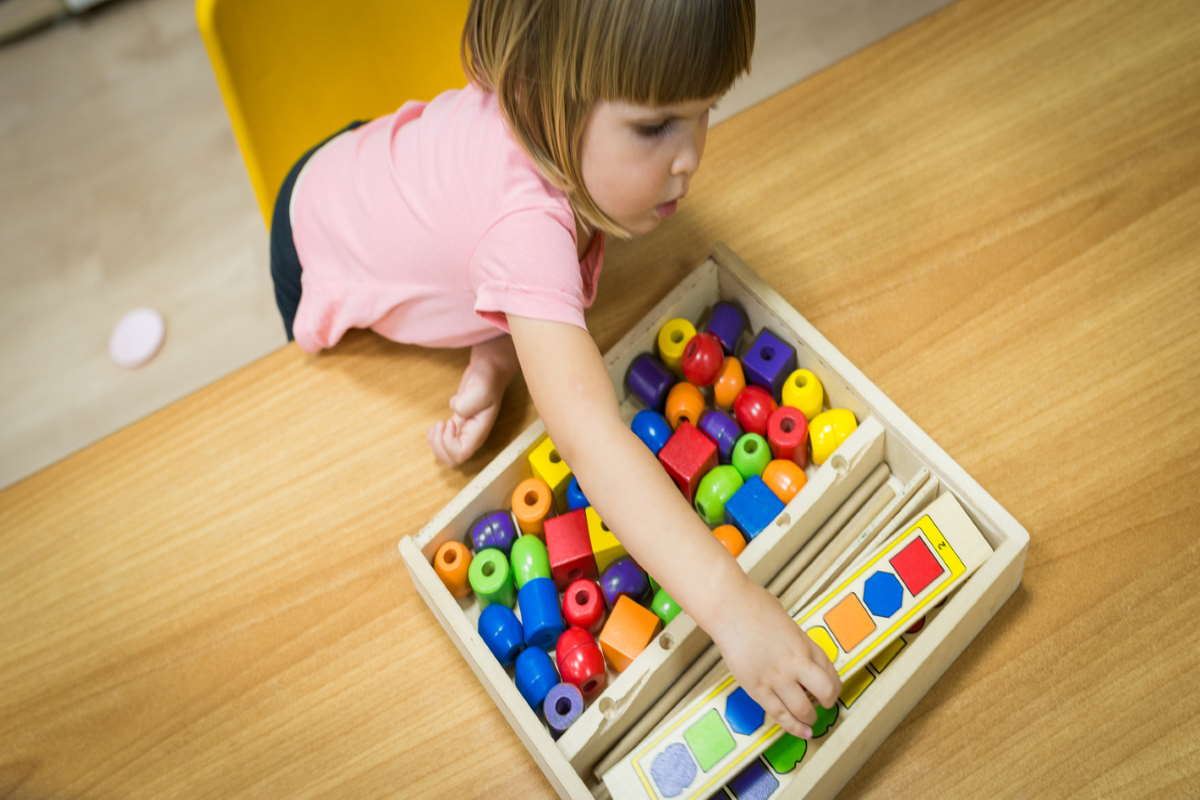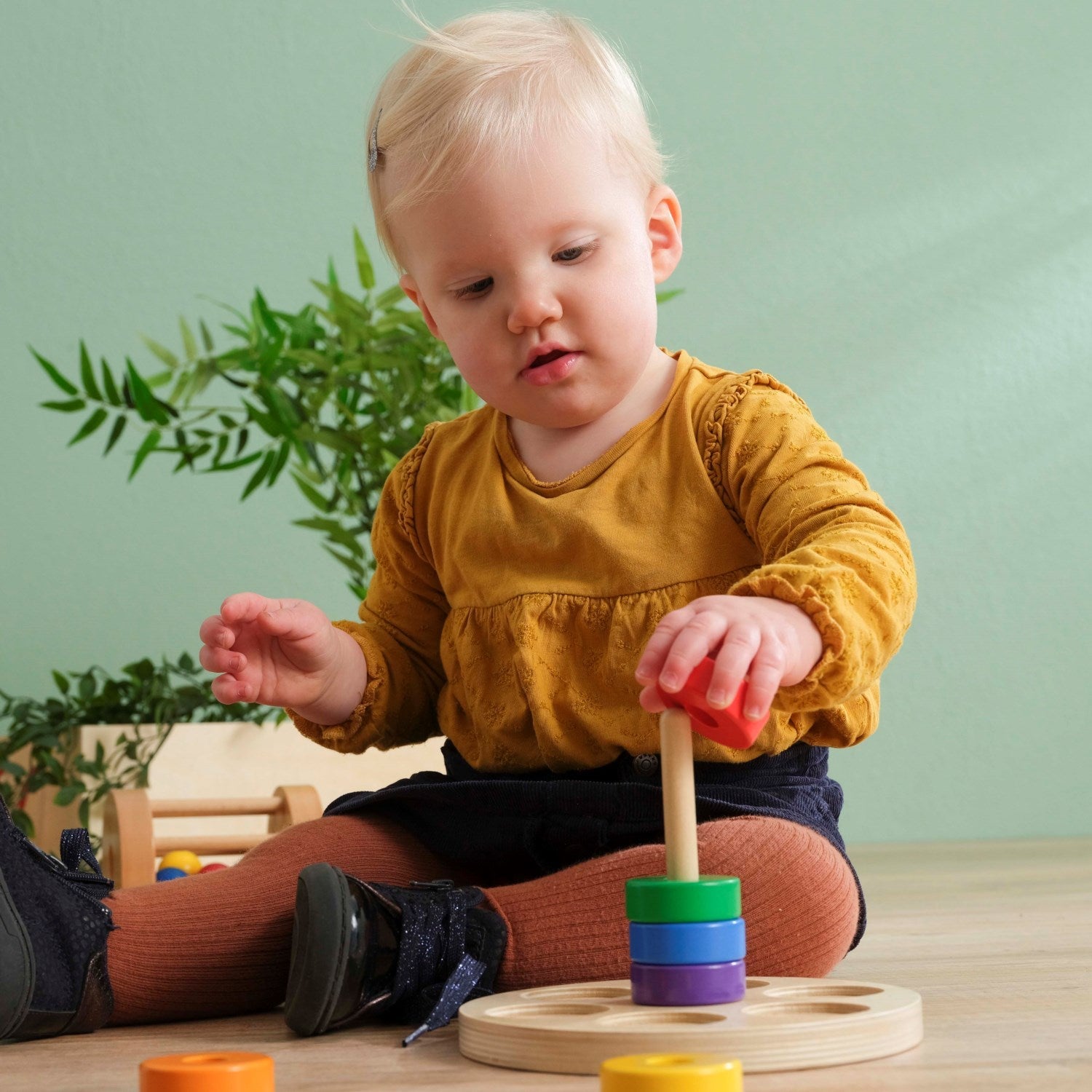
Introduction
Montessori education advocates for a child-centered approach that emphasizes independence, freedom within limits, and developmentally appropriate activities. At the core of this philosophy are Montessori toys, designed to support a child’s natural curiosity, exploration, and cognitive development. In this comprehensive guide, we will delve into the world of the best Montessori toys, exploring their significance in fostering hands-on learning, sensory exploration, and imaginative play. Discover the essential principles of Montessori education as we showcase the top Montessori toys that promote holistic development in children.
Part 1: Understanding the Principles of Montessori Education and Toy Selection
Level 1: Hands-On Learning and Practical Life Skills
Montessori education focuses on tactile, hands-on learning experiences that promote the development of practical life skills. The best Montessori toys are designed to encourage children to engage in purposeful activities that foster independence, fine motor skills, and problem-solving abilities. These toys often mimic everyday objects or activities, such as pouring, stacking, and sorting, allowing children to explore and interact with the physical world in a meaningful and purposeful manner.
Level 2: Sensory Exploration and Cognitive Development
Montessori toys are carefully crafted to stimulate sensory exploration and cognitive development in young children. From wooden sensory blocks and textured puzzles to sensory balls and sorting activities, these toys engage multiple senses, inviting children to explore shapes, textures, colors, and sizes. By encouraging sensory exploration, these toys support the development of cognitive skills, spatial awareness, and critical thinking, laying a strong foundation for future academic and creative pursuits.
Part 2: Showcasing Essential Categories of Montessori Toys
Level 1: Practical Life and Fine Motor Skills Toys
Practical life and fine motor skills toys form a fundamental category of Montessori toys, encompassing activities that promote dexterity, hand-eye coordination, and independence. These toys often include practical life tools, such as child-sized brooms, watering cans, and gardening tools, as well as fine motor skill materials like threading beads, lacing cards, and knobbed puzzles. By engaging in these activities, children develop essential motor skills, concentration, and a sense of accomplishment through purposeful, real-life tasks.
Level 2: Sensorial and STEM-Based Toys
Montessori education places a strong emphasis on sensorial and STEM (science, technology, engineering, and mathematics) learning experiences. Sensorial toys, such as color tablets, sound cylinders, and geometric solids, allow children to refine their senses and understand abstract concepts through hands-on exploration. STEM-based toys, including building blocks, magnetic tiles, and construction sets, promote problem-solving, experimentation, and creativity, nurturing a passion for scientific exploration and logical thinking in young learners.
Part 3: Nurturing Creativity and Imaginative Play with Montessori Toys
Level 1: Open-Ended and Imagination-Driven Toys
The best Montessori toys prioritize open-ended, imagination-driven play experiences that empower children to explore their creativity and inventiveness. These toys, which may include wooden blocks, natural play dough, loose parts, and art supplies, allow for limitless exploration and self-expression. By engaging in open-ended play, children develop critical thinking, communication skills, and imaginative abilities, fostering a love for free-form creativity and self-directed play.
Level 2: Language and Literacy Materials
Language and literacy materials are integral to Montessori education, promoting the development of early literacy skills and language acquisition. Montessori toys in this category often include alphabet puzzles, phonetic sound sorting games, picture-word matching cards, and storytelling props. These toys encourage children to explore language, expand their vocabulary, and develop pre-reading and pre-writing abilities in a supportive, play-based environment.
Part 4: Selecting the Best Montessori Toys for Optimal Learning and Development
Level 1: Quality, Natural Materials, and Safety Standards
When choosing Montessori toys, it is essential to prioritize toys made from high-quality, natural materials, such as wood, cotton, and metal, that meet safety standards and promote sustainability. Toys crafted from these materials offer durability, sensory richness, and an authentic tactile experience, aligning with the Montessori philosophy’s emphasis on connecting children with the natural world and promoting environmental awareness.
Level 2: Alignment with Developmental Stages and Interests
The best Montessori toys are thoughtfully selected to align with children’s developmental stages and individual interests. These toys should offer age-appropriate challenges and opportunities for skill development, catering to children’s natural inclinations and fostering a sense of curiosity and engagement. By selecting toys that resonate with a child’s unique interests and abilities, parents and educators can create a supportive, enriching environment that encourages meaningful learning experiences.
Part 5: Montessori Toy Rotation and Environment Considerations
Level 1: Toy Rotation and Environmental Design
Montessori education emphasizes the importance of toy rotation and carefully curated environments that promote independent exploration and learning. To support this approach, parents and educators can create thoughtfully organized learning spaces that feature a selection of Montessori toys appropriate for children’s developmental levels and interests. Implementing toy rotation systems ensures that children have access to a variety of toys while maintaining a sense of order and focus, fostering deep engagement and sustained interest in their play experiences.
Level 2: Incorporating Nature-Based and Outdoor Toys
Nature-based and outdoor toys play a vital role in extending the Montessori principles of exploration and connection with the natural world. Toys such as gardening tools, magnifying glasses for outdoor exploration, nature identification kits, and outdoor climbing structures provide opportunities for sensory-rich experiences and active, nature-focused play. By incorporating these elements into children’s play environments, parents and educators can encourage a deep appreciation for the natural world and foster a sense of stewardship towards the environment.
Part 6: The Role of Montessori Toys in Holistic Child Development
Level 1: Fostering Independence and Self-Regulation
Montessori toys are designed to promote independence and self-regulation in children, empowering them to make meaningful choices and take ownership of their learning experiences. By engaging with open-ended toys and materials that encourage self-directed exploration and decision-making, children develop a sense of autonomy, responsibility, and self-reliance. These foundational skills lay the groundwork for confident, independent learners who are equipped to navigate challenges and embrace lifelong learning with curiosity and resilience.
Level 2: Promoting Social and Emotional Learning
Montessori toys also support the holistic development of children’s social and emotional skills. Through collaborative play, turn-taking games, and role-playing activities, children learn to communicate, collaborate, and empathize with others. These toys provide opportunities for children to practice conflict resolution, emotional expression, and the development of a positive self-concept. By engaging in meaningful social interactions facilitated by Montessori toys, children cultivate essential life skills that contribute to their overall well-being and interpersonal relationships.

Conclusion
The best Montessori toys offer a rich tapestry of experiences that align with the fundamental principles of Montessori education, promoting hands-on learning, sensory exploration, imaginative play, and the holistic development of children. By carefully selecting and incorporating these toys into children’s environments, parents and educators can provide meaningful and enriching experiences that support children on their journey of discovery, self-expression, and learning.
In summary, the best Montessori toys encompass a diverse range of materials and experiences that promote hands-on learning, sensory exploration, imaginative play, and the development of essential cognitive, creative, and practical life skills. These toys are designed to align with the principles of Montessori education, providing children with the tools and opportunities to explore the world around them in a purposeful and self-directed manner.


